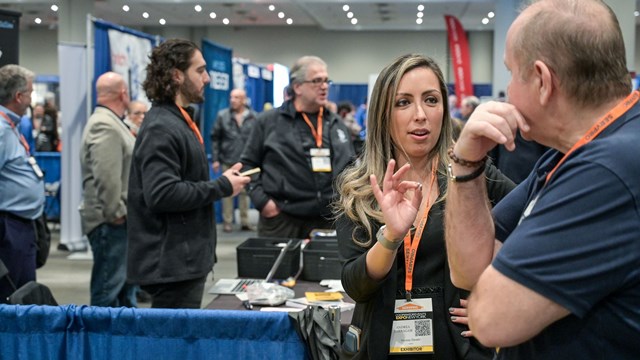
Preparing the annual budget is by no means an easy task. Those charged with preparing condominium or HOA budgets will soon begin reviewing costs, gathering data and projecting expenses for the coming year. Communities, businesses, individuals, families, groups and organizations of all kinds must have a budget in place in order to navigate both everyday expenses and unexpected costs, while maintaining a certain life or business style. A well-defined, well-written budget is a powerful financial tool allowing funds to be saved and/or allocated for specific costs and projects; budgeting is a way to estimate expenses and allow for those funds to be available when needed.
Budgeting for condo and HOA communities actually involves not one, but two budgets, each covering a specific range of expenditures. Recurring (and more or less predictable) expenses such as taxes, utilities, staff salaries, insurance and maintenance are the line items most frequently found in the operating budget. Major projects, and long term plans, and emergency funds are budgeted for in the capital budget,and those items will vary, depending on the individual community’s needs, wants, and means.
While expenses are divided into operating or capital expenses, income is generally obtained only from HOA dues or fees, and any fines or penalties incurred and repaid by residents. When any member of the board is unclear or confused on which budget should be assigned which cost, it can be difficult for the board to function properly and to uphold the fiduciary duties for the community. That's why it's important for every board member to have at least a working familiarity with the way their community's budgets function and interact.
The Budgeting Process
Reviewing the existing budget and formulating a budget for the upcoming year is an annual duty for the HOA board. Marc Rodriguez, LCAM, CMCA, director of management services for Association Services of Florida often finds that the community association manager (CAM) will prepare the first draft. “The manager will typically use prior year figures, historical information, and estimates for future projects in the drafting stage. The draft budget is then usually reviewed by the treasurer or the budget/finance committee.”
After any changes and adjustments are made, the board will likely hold a budget workshop meeting for additional fine-tuning, and then formally approve the budget in a final board meeting. “In Florida, the association is required to notify all members of when and where the budget meeting is being held and a copy of the proposed budget must be mailed 14 days in advance of the meeting,” says Rodriguez. Ultimately the budget is approved by the board.
Edna Sue Tully-Davis, a CPA in Wesley Chapel, finds the responsibility for creating an annual budget generally falls to the association’s president, secretary, and treasurer, with input and assistance from the accountant and attorney. “The board treasurer will usually work the hardest on preparing a budget for approval,” she explains.
John 'Jack' Flanagan, CPA, president of Sarasota-based accounting firm Flanagan & Jason Inc. notes that most boards will rely on the accountant or CPA to work with them more closely at budget time. He recommends working about three months out before an approved budget is expected to allow sufficient time for fine tuning. His rule of thumb will work for association on either a calendar year or a fiscal year timetable.
Matthew Kuisle, P.E., RS, PRA, client services director with Reserve Advisors in Tampa recommends starting the budgeting process even earlier when possible. “Budgets are often created by managers, boards, and committee members and these individuals often consult accountants, attorneys, professional reserve analysts and other experts for guidance. Boards typically vote to approve the budget at an annual meeting of the membership.”
As a 'best practice' Kuisle recommends keeping budget folders for upcoming years to understand proposed projects and contracts for each year and the changes that might be required in each budget. “A reserve study can be done as a first step to help set the budget for capital repairs and replacement projects,” he says. “This approach can help anticipate the expense of large reserve projects and allow ample time to build the reserves.” Kuisle suggests using a professional engineer for the reserve study to help eliminate any big surprises in the budget.
Rodriguez and Kuisle both recommend the use of a reserve schedule formula to further indicate when a repair or replacement project will mostly likely be needed. “Reserves are calculated by using a formula that takes into account the useful life of an item, the remaining useful life, and the replacement cost component,” says Rodriguez.
“And this information is required to be on the proposed budget for every Florida condominium association and for those HOAs that have statutory reserve funds,” adds Kuisle. Florida statutes also require condominium associations to budget for any capital repair or deferred maintenance with an expected expense of $10,000 or more.
Kuisle also recommends allocating funds for near term services, while keeping a strategic plan in place for the future. “We see many energy-saving options for buildings today. Everything from lighting modifications to geothermal heating options can lower energy usage and costs over time. These modifications generally require an initial capital investment, however, so it is important to keep these future expenses in mind when budget planning.”
Rodriguez also supports an early start towards annual budget planning. “When the mid-year mark has passed, the association’s financials will carry sufficient history to prepare a budget draft. The community association manager can then meet with the treasurer and committees to discuss and edit the budget,” says Rodriguez. He likes to see the budget prepared early to allow sufficient time for the association to notify the membership and hold the required meetings.
While these suggestion and recommendations may sound like a lot of work, Flanagan explains 75 to 80 percent of the budget is normally reoccurring expenses, like utilities, insurance, and lawn maintenance. Tully-Davis suggest looking at the history of both the projected income and expenses. If the income remains stable, allowing for a 5 to 10 percent increase in expenses will usually adequately allow for any inflation. “However, repairs are hard to estimate,” says Flanagan.
Factoring in Capital Expenses
Repairs, hurricane or storm damage, painting, roofing, pool resurfacing and other restoration projects are paid from the capital budget. When a board is underfunded (as many were in the recent recession) special assessments may be required to fund capital projects, however, most boards will take a proactive stance to avoid special assessments whenever possible. So who is best qualified to help determine future cost for big projects in the budget?
“Contractors and service providers can help with annual costs,” says Kuisle, “but an independent reserve analysis can best determine future annual cost and times of big projects. The independent analysis should arm a board with lots of information that can help define the scope of projects and even negotiate better contracts and save the association money.”
Rodriguez also favors reviewing the past expense history and obtaining cost estimates from contractors or engineers to better determine the estimated cost of future expenses and projects. “Lately, I always recommend the manager and board contact the association’s current vendors—particularly the insurance agent, utilities, waste services, and others—to ask them if there will be a cost increase in the coming year, and if they can provide an estimated increase amount. This process is usually very helpful.”
Flanagan and Tully-Davis also recommend reviewing the expense history and calling in the vendors for cost projections. By contacting vendors early, a board may also negotiate a better rate with the current provider, or have time to shop for better pricing—particularly if contracts are up for renewal.
Budgeting for Mother Nature
In addition to the general 60-90 days of working capital every association should also have some 'rainy day' savings, Kuisle says. “Here in Florida, that rain might be accompanied by hurricane force winds. If an association has the ability, I would recommend saving over time for the insurance deductible. You never know when—or if—these funds will be necessary, but any amount will help for emergency cleanup and or the association’ deductible payment.”
By being proactive and budgeting for emergencies that do not materialize, a board may build a surplus. While this can be a nice problem to have, once a surplus is accrued the board and management team have a legal and moral obligation to show those funds in the annual statements and financial reports. How the surplus is handled depends on the individual property, and the needs of the community.
Flanagan has seen surplus funds rolled into working capital, or transferred to the reserves. There is always the option of refunding the surplus to residents but often that is not the best course of action, and everyone agrees refunds are a rarity. Rodriguez has seen an association vote to save the surplus in an interest bearing account, roll it over to the following year, or allocate the surplus funds for a special project. Whether surplus funds are saved, rolled over, or spent on special projects any community managed well enough to have a surplus is sure to benefit from the extra funds.
Anne Childers is a freelance writer and a frequent contributor to The South Florida Cooperator.




Comments
Leave a Comment